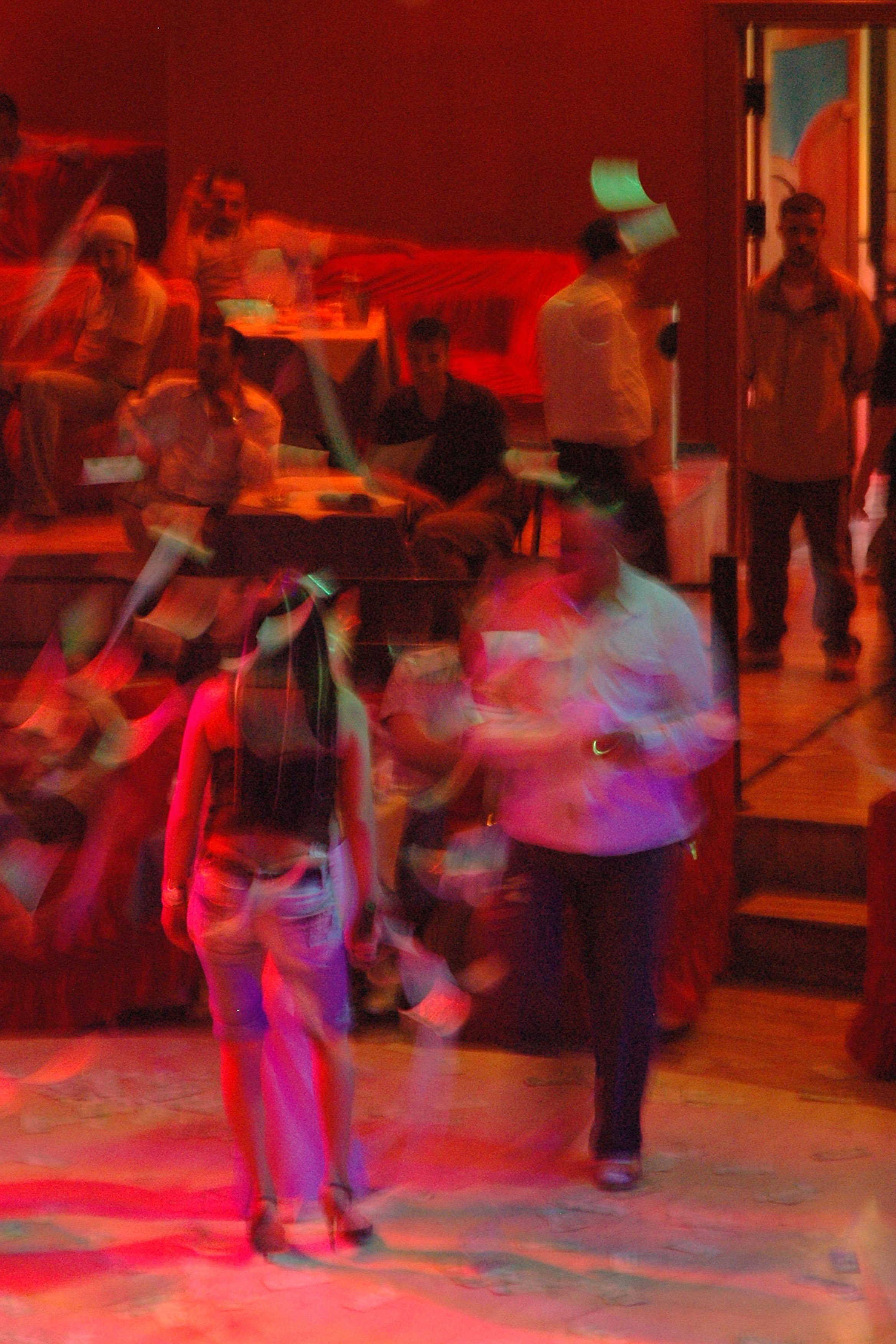[Read this report in Arabic]
When the UN Refugee Agency (UNHCR) found her, Hiba was on the point of being deported to Iraq. Instead, the UNHCR - to whom Hiba told her story - arranged for the teenager to be resettled in Canada earlier this month, where she recently gave birth to a baby boy named Zaman (Arabic: time).
“He’s named after the time I never had,” she said.
Hiba’s case is far from unique. Though there are no reliable figures, agencies and activists say hundreds of people from different parts of the world are trafficked to Syria each year for prostitution, domestic work, and even for the sale of body parts. The influx to Syria of over 1.5 million Iraqi refugees since 2003 has exacerbated the problem.
New draft law
After lengthy negotiations, a draft law specifically targeting trafficking in Syria has been submitted to the prime minister’s office for approval. Supporters are hoping the new legislation will be passed by presidential decree and take effect within a few months. The law will increase the minimum punishment for trafficking from the current three to seven years imprisonment and a fine of SYP 1 million (US$20,000).
“We want to have the best legislation in the world to counter the issue of trafficking,” said Farouk al-Basha, a leading member of the committee drafting the bill on trafficking, and a member of the Committee for Family Affairs. “Most importantly, for the first time the trafficked person will be considered a victim and not punished. We will go after the perpetrators and the causes of trafficking,” he said.
| More on Iraqis in Syria |
|
Iraqi refugees in Syria talk about their poor living conditions and uncertain future (03:18) |
|
|
Currently there are no separate laws relating to trafficking in Syria. Offenders are prosecuted under standard criminal law, which results more often than not in the victims of trafficking being punished more than the traffickers themselves. Women in particular have been detained and deported on charges of expired entry papers and prostitution.
Article 509 of Syrian Criminal Law makes prostitution illegal, and stipulates prison terms for offenders of between three months and three years, or a fine of up to $115 for anyone involved in the sex industry.
"Syrian law does not protect the rights of women,” said women’s rights activist Maysa Hilyoa. “The same punishment applies for a woman, who is the victim, as for the man, who is often the one forcing her into the work.”
Despite a 2006 law banning the practice, there are now an estimated 100 recruitment agencies in Syria offering young girls for domestic service. Many of the girls have been brought into Syria against their will and have few rights.
Trafficking for the sex and entertainment industries is also significant. Based on anecdotal evidence, hundreds of Iraqi girls have been sold for these purposes, as refugees in Syria become increasingly desperate. Girls from Russia are also said to be brought into Syria to work in the sex industry.
US report
In its annual human rights report, published on 11 March, the US Sate Department found that Syria “does not fully comply with the minimum standards for the elimination of trafficking and did not make significant efforts to do so during the year”. However, it noted that the committee drafting a law against trafficking had met three times during 2007.
“Syria is a destination country for women trafficked from South and Southeast Asia and Africa for the purpose of domestic servitude and from Eastern Europe and Iraq for sexual exploitation,” the report said.
Responding to the report as a whole, the Syrian Foreign Ministry said it was “not objective and is based on political considerations”.
“I see very genuine support of the Syrian government on this issue,” said Maria Rumman, head of the International Organization for Migration (IOM) in Syria, the global body that counters human trafficking. “The government is more committed to working on this issue than other regional countries.”
 Photo: Hugh Macleod/IRIN  |
| Two south-east Asian domestic workers arrive at Damascus airport. Despite a 2006 law banning the practice, there are now an estimated 100 recruitment agencies in Syria offering young girls for domestic service |
Sybella Wilkes, UNHCR spokeswoman in Damascus, said each week there are up to 50 Iraqi women in jail on charges of prostitution. “Some are professionals but many are forced into it by gangs or family members,” she said.
The IOM, the Syrian Women’s Union, the UNHCR and smaller local non-governmental organisations (NGOs) have increased the level of support they offer trafficked persons.
“We want to raise awareness to fight this phenomenon and combat the crime,” said Rumman, pointing to workshops that IOM have conducted in Syria since September 2005 to enhance local capacity in preventing trafficking.
Several shelters have also been opened to temporarily house those freed from the traffickers, as well as training centres established by the Ministry of Social Affairs.
“We are now working to establish a very big shelter for over 100 women,” said al-Basha. The shelter is due to open within a couple of months. Agencies running the shelters did not allow IRIN to meet any of the trafficked women staying there, citing the sensitive nature of the issue.
jl/hm/ar/cb
This article was produced by IRIN News while it was part of the United Nations Office for the Coordination of Humanitarian Affairs. Please send queries on copyright or liability to the UN. For more information: https://shop.un.org/rights-permissions





